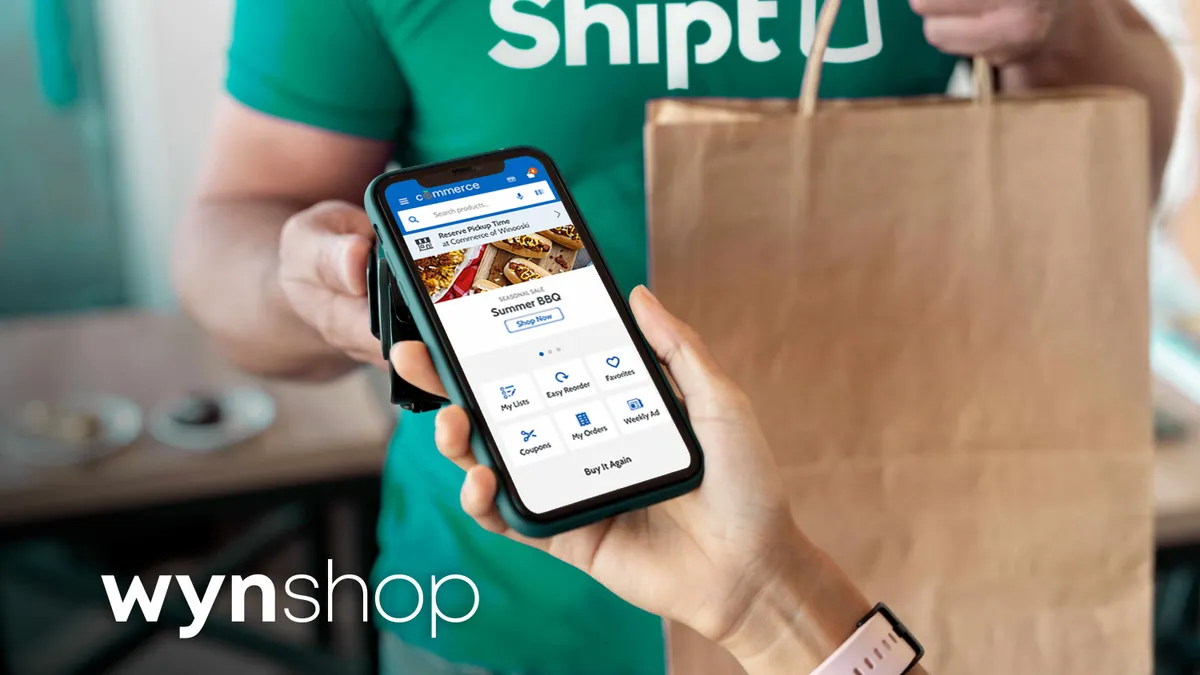Dive Brief:
- Grocery e-commerce technology provider Wynshop has acquired Halla, an artificial intelligence startup that specializes in personalization, the companies announced Monday. Terms of the deal were not disclosed.
- Halla will operate as a business unit of Wynshop and retain its brand, Halla CEO Spencer Price said in an interview.
- The merger builds on a relationship between the companies that took shape as the COVID-19 pandemic supercharged the online grocery sector four years ago.
Dive Insight:
Wynshop’s decision to acquire Halla stems from its interest in taking greater advantage of the startup’s expertise in AI to predict what shoppers will want to buy, Wynshop CEO Neil Moses said in an interview.
Wynshop found that Halla was especially good at identifying products shoppers might be interested in based on their purchase history, Moses said, adding that the recommendations the company’s technology generates has helped to significantly increase overall basket sizes for the grocers Wynshop works with. The company wanted to make artificial intelligence a central element of its e-commerce platform from the start and concluded that Halla “could do it better than we could,” Moses added.
Formerly known as ThryveAI and founded by Mi9 Retail in 2020, Wynshop became an independent company earlier this year, Moses said. Wynshop specializes in working with mid-size grocers, including Cub Foods, Brookshire Grocery Co., Albertsons-owned United Supermarkets and grocery cooperative Wakefern Food.
Halla uses machine learning models to mine data about biological, cultural, dietary and sensory aspects of people’s shopping patterns.
Moses said Halla’s ability to distinguish between items that might seem similar but are actually distinct, such as bananas and banana bread, is particularly powerful because it can help grocers avoid offering customers substitutions that aren’t what people want.
Wynshop is also planning to tap Halla’s artificial intelligence capabilities to expand its relationships with other technology providers it works with, Moses said. For example, the company intends to use Halla’s technology in conjunction with retail media firms to help grocers present more relevant advertisements to consumers, he said.
Wynshop plans to align resources, such as its data analytics and data extraction units, with Halla, which currently employs about 12 people, Moses said. Wynshop’s existing sales and marketing teams will handle those functions for Halla going forward, he said.
Price said he hopes to leverage Wynshop’s expertise in collecting data. He added that Halla will also benefit from Wynshop’s business intelligence capabilities, which he said will make it easier for retailers to implement recommendations Halla’s personalization engine generates.
“The one-to-one nature of how we are personalizing the recommendations [is] going to become significantly more robust as we start to be able to see how shoppers shop differently across a much wider array of retailers than we’re currently deployed with, and that will allow us to infer insights that make for even more tailored recommendations,” Price said.













